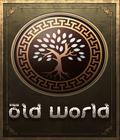If someone has played a 4X game, there's a good chance that the game is from the Civilization series. It's by no means a crowded genre, but there's probably a good reason for that. Civilization is really good. If there's one person who could come out with a game to compete with that juggernaut, it'd be Soren Johnson, who was the lead designer of Civilization IV and Offworld Trading Company. Old World, the newest release within the strategy genre from Mohawk Games, seeks to do just that.
On the surface, it'd be easy to mistake Old World for another Civilization. Players can choose to play as a culture (all of the expected choices: Babylonian, Greek, Persian, Roman, etc.), start the game with a settler, and slowly till the surrounding land while they expand their newly founded city. As you dig deeper into Old World's systems, you'll find intricate differences that set it apart from others in the genre.
Instead of showing the progression of time through evolving technologies throughout the eras, you get to watch a revolving door of characters take over the throne as time progresses and rulers change. Once you choose a partner for a hand in marriage, your family steadily grows, allowing you to choose a successor when the time comes. Along the way, you'll help pick their path through life, instilling various stats that may be useful when they come of age to rule over your empire. There are even randomized events that occur to these characters, ranging from bad behavior at school to death from out-of-control drinking shenanigans. On paper, this is a clever idea for a 4X game, but it felt like I was getting bombarded with random life events. If Mohawk Games can dial back the frequency of these events, the system would be more engaging.
When I wasn't dealing with the various cahoots my children were getting into at grade school, I was often sending my scouts and warriors out in the wilderness to reveal the map and trade blows with barbarian tribes. Unit movement is something that requires a tactful mind, as you are limited to the amount of moves that can be made per turn across all of your units. As you make decisions through the game's recurring events, your legitimacy increases or decreases, depending on your choices. This legitimacy determines how many orders you have available per turn. Every action consumes orders. The system feels at odds with what the genre is all about: explore, expand, exploit, exterminate. I rarely felt like I had enough orders in a turn to do any of that. By the time my workers were done expanding, I didn't have any orders left for my army to exterminate or my scouts to explore. Aficionados of the genre may like the depth and tactfulness this adds to the game.
Another difference in Old World is the randomized deck-shuffling approach for tech trees. Players won't necessarily be able to pick a linear path and start cruising down that desired path. Instead, each technology is a card within a deck. When it's time to research a piece of technology, four cards are pulled from the top of the deck, and players must select which technology they want to start next. Once you make your selection, research begins, and the technology unlocks after the specified amount of research credits have accrued. Once it's time to select a new technology, the remaining list of technologies available for research are shuffled together, and four more are offered to the player to choose from. The philosophy is that it forces players to make difficult decisions when two technologies that you want are both offered as the next option. While that's true, it also slows down the pace of the game tremendously. I need warriors and forestry, but I can't research each of them back-to-back. Instead, I get one, and then I have to wait until another research option becomes available again.
To mitigate this, Mohawk Games has added a resource market trading system to Old World. Players can trade in surplus resources for cash that can be spent on needed resources. This will be a system you'll need to engage with, since you may not have unlocked the required technology to collect a specific resource. Those familiar with the tabletop game Settlers of Catan will feel right at home in this regard. You may have all the rocks in the world, but the exchange rate for trees may require selling three or four rocks for the price of one piece of wood. This system mitigates some of the slowness and randomness that comes with the tech tree. The nearly 4:1 exchange rate is too high for it to make an impact.
For those who are accustomed to the Civilization series, there's a slower pace to Old World — almost deliberately so. All of the systems are constantly asking you to make a choice. Do you want this technology or that one? Do you want to expand this turn or exterminate? The slower progression may be a better reflection of the historical period in which the game is set, but I'm definitely looking forward to seeing how Old World develops during its time in Early Access.
More articles about Old World













 Old World (previously known as 10 Crowns) is an epic-scale turn-based strategy game that lets players create the greatest dynasty in world history.
Old World (previously known as 10 Crowns) is an epic-scale turn-based strategy game that lets players create the greatest dynasty in world history.



















